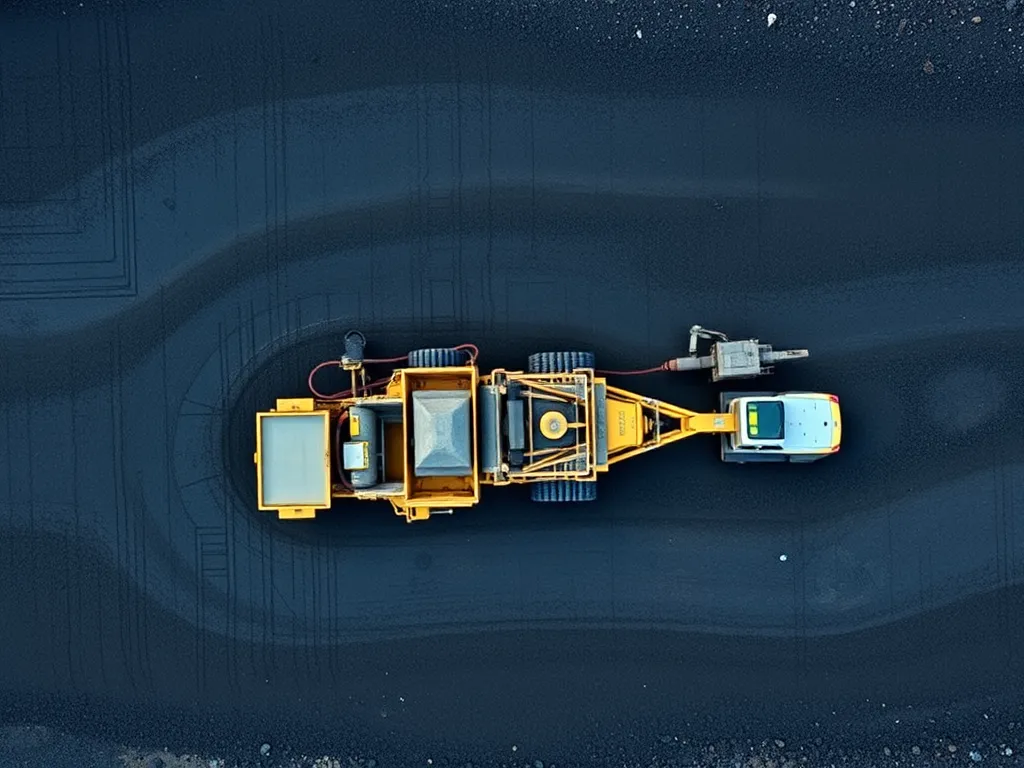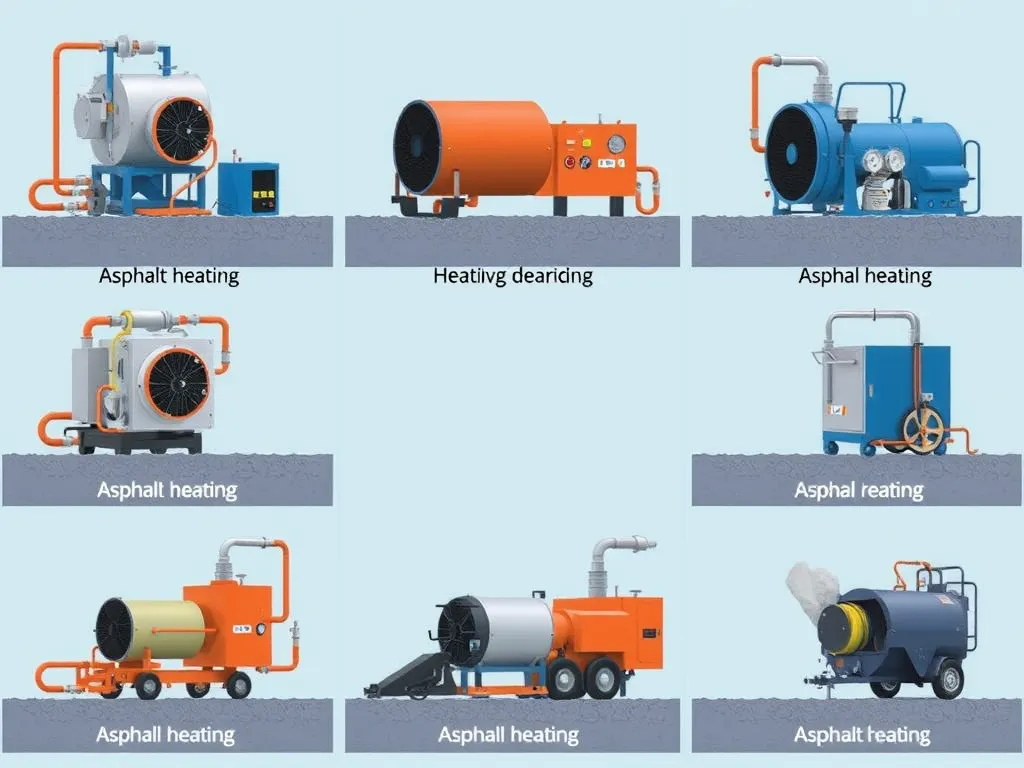Advanced Asphalt Technologies: Modern Solutions and Material Innovations
Published on: May 13, 2025 | Last Updated: April 14, 2025
Written By: George Voss
Advanced asphalt technologies are modern methods transforming how we build roads. These innovations use materials like polymer-modified binders and smart sensors to create longer-lasting, eco-friendly pavements. Unlike traditional asphalt, advanced techniques focus on precision engineering and sustainability. Current breakthroughs include warm-mix asphalt that cuts production temperatures by 50°F and intelligent compaction systems ensuring optimal density. Companies like Owens Corning and research groups such as the National Asphalt Pavement Association (NAPA) drive these developments, offering solutions for highways, airports, and industrial zones.
This article explores the latest advancements shaping the industry. We’ll break down core components like high-performance binders and Superpave mix designs. You’ll learn how technologies like permeable asphalt manage stormwater and how recycled materials cut costs by up to 30%. We’ll also examine environmental impacts, cost benefits, and answer common questions about installation and performance.
Contents
- Core Components Of Advanced Asphalt Technology
- Key Innovations in Asphalt Material Technology
- Asphalt Composition Tech and Testing
- Advanced Asphalt Road Technology Applications
- Asphalt Performance Technology Enhancements
- Environmental Impact and Sustainability
- Economic Benefits Of Advanced Asphalt Solutions
- FAQ: Addressing Common Questions
- Closing Thoughts
- Useful References for You:
Core Components Of Advanced Asphalt Technology
Advanced asphalt relies on two main parts: new-age polymers and high-grade binders. These elements boost how long roads last and how well they handle heavy use. Both play key roles in modern asphalt road technology.
Asphalt Polymer and Composite Material Innovations
New polymer blends and composite mixes are changing asphalt. These materials add strength, cut wear, and fight weather damage. They form the base for high-performance pavements.
Enhancing Durability with Polymer-Modified Asphalt
Adding polymers like SBS or EVA to asphalt makes it bend, not break. This mix resists cracks, ruts, and wear from trucks. Tests show polymer asphalt lasts 30% longer than standard types. PG 76-22 binders, rated for -22°F to 76°F, work best in harsh climates.
Role of Advanced Binders in Asphalt Composition
Binders glue the asphalt mix together. New versions use elastomers or nano-clay to handle heavier loads. PG 82-22 binders, for example, support up to 10 million truck passes. These smart binders cut road fixes by 40% over 10 years.
These core upgrades set the stage for next-level asphalt tech. Now, let’s explore how fresh material breakthroughs push limits even further.
Key Innovations in Asphalt Material Technology
Modern asphalt technology solutions focus on boosting structural integrity, workability, and sustainability. Three groundbreaking changes now shape road construction.
High-performance Asphalt Binders
Performance Grade (PG) binders set new standards. These materials adapt to local climates, with PG 76-22 binders handling temps from -22°F to 76°F. Polymer modification—using styrene-butadiene-styrene or crumb rubber—increases rutting resistance by up to 40%. While costing 15-30% more than traditional binders, roads last 7-12 years longer.
Warm-mix Asphalt (WMA) Technology
WMA lowers production temps by 50-100°F using foaming agents or organic additives. This cuts fuel consumption by 20% and carbon output by 30%. Contractors gain longer hauling distances and cold-weather paving options. A 2023 study showed WMA mixes achieve 93% density at 250°F vs. 290°F for hot-mix asphalt.
| Factor | WMA | Traditional HMA |
|---|---|---|
| Production Temp | 250-275°F | 300-325°F |
| CO2 Output | 15 kg/ton | 22 kg/ton |
| Compaction Window | +25 minutes | Standard |
Intelligent Compaction Systems
GPS-guided rollers with infrared sensors now map stiffness in real time. Machines adjust vibration frequency to hit 92-96% density targets. Projects using this tech report 35% fewer density failures. A Missouri highway trial saw compaction voids drop from 6.2% to 3.8%, doubling crack resistance.
As materials push limits, verifying quality becomes critical. Next, we’ll look at testing methods that guarantee these innovations perform as designed.
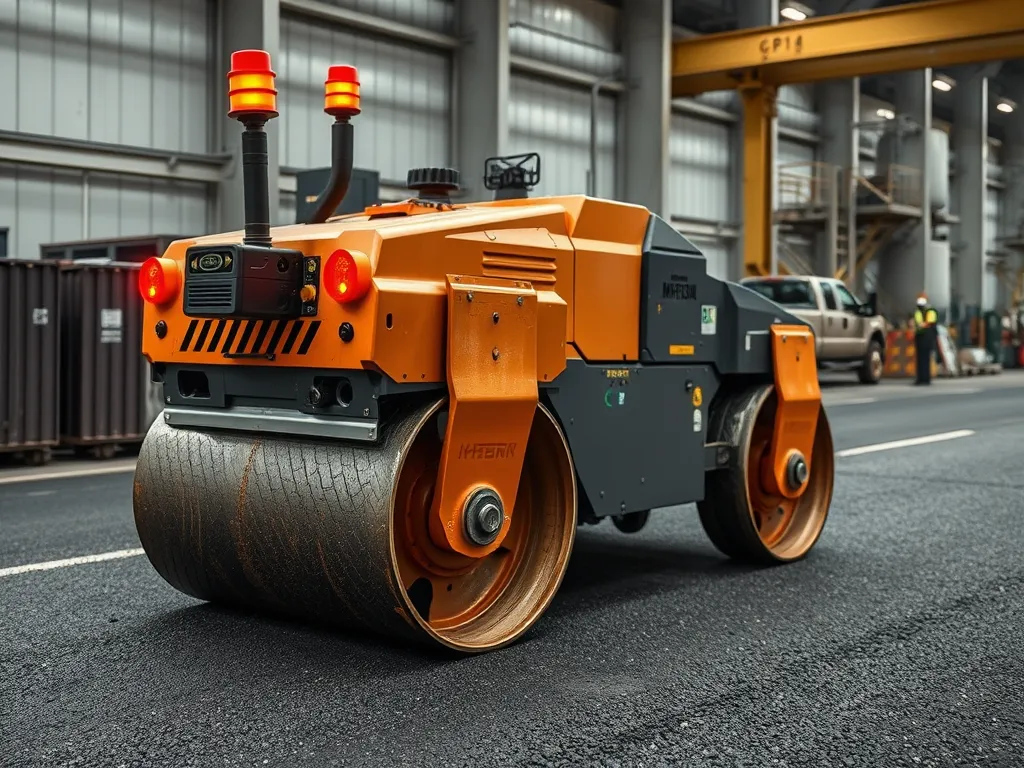
Asphalt Composition Tech and Testing
New tools shape how we build roads. Testing now ensures mixes last longer and handle stress better. From lab checks to field scans, tech spots flaws before they grow.
Superpave Mix Design and Performance Tests
Superpave replaces old trial methods. It uses climate data to pick binders and rocks. Tests mimic years of wear in days. This mix design cuts rutting by up to 40% vs. past methods.
Dynamic Shear Rheometer (DSR) Uses
The DSR tool tests binder goo under heat and pressure. It bends samples to check stiffness. Binders pass if they resist flow at 140°F but stay flexible at -20°F. This ensures roads won’t crack or sag.
Non-destructive Tests for Quality Checks
Ground radar scans layers without drills. Infrared cams spot weak patches by heat signs. These scans save up to 30% in repair costs. Crews fix issues before potholes form.
Tech now lets us see inside pavements like never before. Next, we’ll explore how these smart layers work in real roads.
Also See: How Much Does Asphalt Cost Per Sq Ft? 2024 Pricing
Advanced Asphalt Road Technology Applications
Modern road construction leverages breakthroughs in material science to solve complex infrastructure challenges. From managing storm surges to supporting freight traffic, these innovations redefine how we build resilient surfaces.
Smart Pavement Solutions for Road Construction
Embedded sensors and connected systems now integrate with asphalt layers. These smart pavements monitor traffic flow, detect structural stress, and relay real-time data via IoT networks. Cities use this tech to optimize traffic signals, predict maintenance needs, and improve safety during extreme weather events.
Permeable Asphalt for Stormwater Management
Permeable mixes feature 16-22% void spaces, letting stormwater drain at rates up to 5,000 liters per minute per square meter. This porous design reduces runoff by 75% compared to traditional pavements. Municipalities pair it with underground retention systems to recharge groundwater supplies while meeting EPA stormwater regulations.
Industrial-grade Asphalt for Heavy-duty Surfaces
Ports, logistics hubs, and manufacturing sites require mixes withstanding pressures exceeding 3,500 psi. Industrial formulations use high-density PG 82-22 binders blended with steel slag aggregates. These surfaces endure over 10,000 heavy truck passes daily without rutting, backed by 20-year performance guarantees when properly maintained.
Next, we’ll explore how modified compositions push the boundaries of pavement longevity under extreme conditions.
Looking beyond surface applications, recent breakthroughs in mix engineering directly combat common failure modes like cracking and deformation.
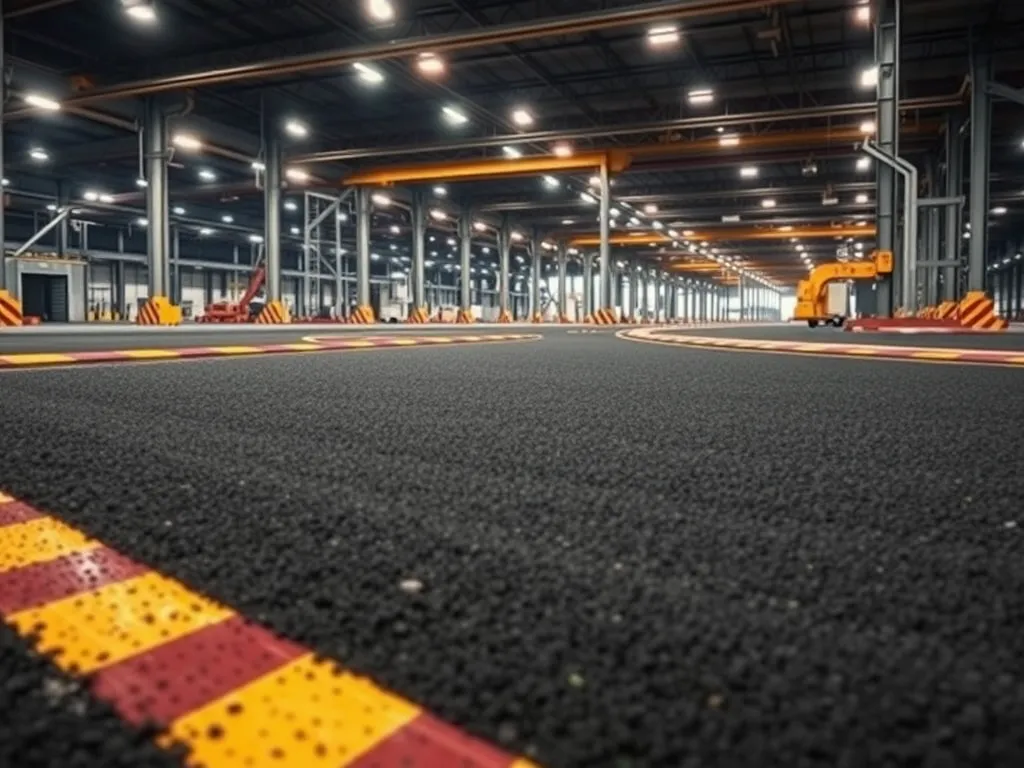
Asphalt Performance Technology Enhancements
Advanced asphalt technologies now deliver roads that last longer and handle heavier loads. These innovations target two critical issues: aging pavement and weather extremes. By refining asphalt composition and testing methods, engineers achieve surfaces that outperform traditional mixes by 50-70% in key metrics.
Extended Lifespan Through Modified Mixes
Polymer-modified asphalt mixes now push pavement lifespans beyond 20 years. SBS (styrene-butadiene-styrene) polymers create flexible binders that resist oxidation. Minnesota’s I-35 project used PG 76-22 binder with 30% RAP (Reclaimed Asphalt Pavement), cutting replacement cycles from 12 to 18 years. Maintenance intervals stretch 40% longer compared to conventional hot-mix asphalt.
| Mix Type | RAP Content | Additives | Avg. Lifespan |
|---|---|---|---|
| Traditional | 15-20% | None | 10-12 years |
| Advanced | 25-40% | SBS Polymers, Fibers | 18-25 years |
Resistance to Rutting and Thermal Cracking
Stone Matrix Asphalt (SMA) and High-Modulus Asphalt Concrete (HMAC) reduce rutting by 40-60% on highways. Texas DOT reported just 3mm rut depth after 5 years on I-10 using SMA with cellulose fibers. For thermal cracks, PG (Performance Graded) binders like PG 58-34 withstand -40°F winters, proven in Alaska’s Glenn Highway rebuild. Infrared imaging detects early stress points, allowing repairs before cracks spread.
These asphalt technology advancements don’t just strengthen roads – they set the stage for greener infrastructure. Next, we’ll explore how these durable surfaces align with environmental sustainability goals.
Environmental Impact and Sustainability
Modern construction prioritizes eco-friendly practices. Advanced asphalt technologies now deliver robust performance while minimizing ecological harm through cutting-edge recycling methods and energy-efficient processes.
Recycling Technologies in Asphalt Production
Innovative recycling methods transform waste into high-value materials. Over 90% of reclaimed asphalt gets reused in new projects, slashing reliance on virgin resources.
Reclaimed Asphalt Pavement (RAP) Integration
RAP repurposes milled pavement by blending it with fresh binders like PG 64-22. Mixes now integrate up to 40% RAP without sacrificing strength, cutting material costs by $3–$5 per ton. Infrared heaters rejuvenate aged bitumen, restoring flexibility for reuse in driveways or highways.
Reducing Carbon Footprint With Warm-mix Methods
Warm-mix asphalt (WMA) tech lowers production temps from 300°F to 230°F using organic additives like Sasobit or chemical foaming. This reduces fuel use by 20% and greenhouse emissions by 35% compared to traditional hot-mix. Contractors gain extended paving seasons due to cooler application temps.
From recycled mixes to low-emission production, these asphalt technology innovations prove sustainability doesn’t compromise quality. Next, we explore how these methods drive down long-term project costs.
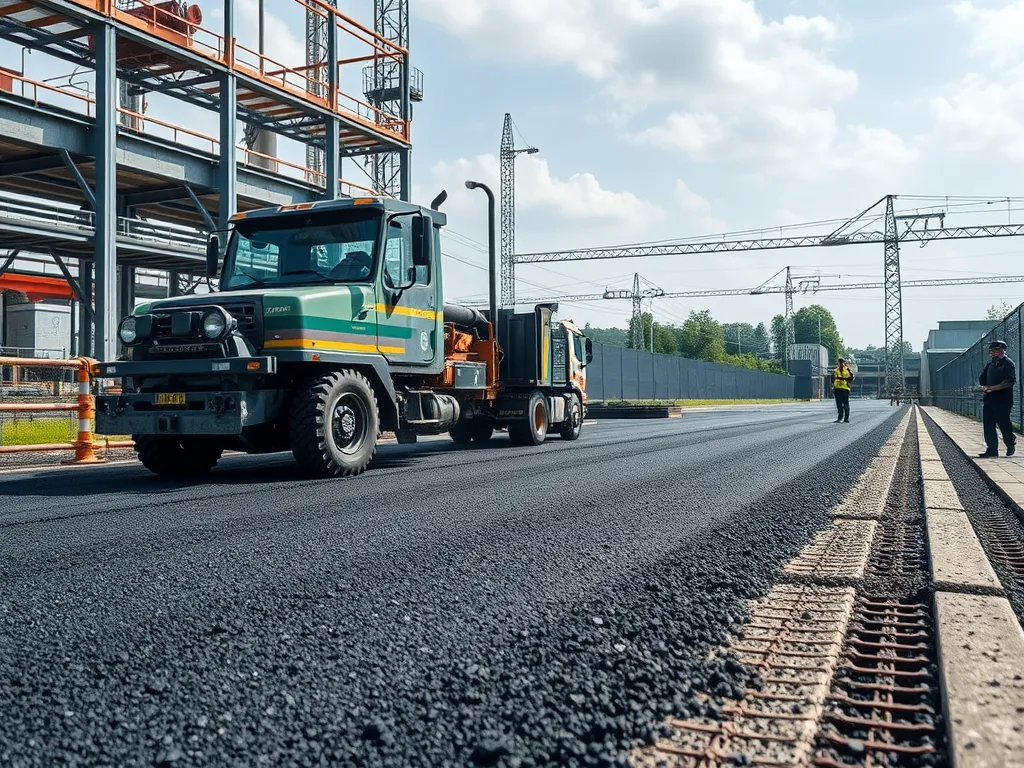
Economic Benefits Of Advanced Asphalt Solutions
Modern asphalt technology advancements transform infrastructure budgets by merging durability with fiscal efficiency. From polymer-enhanced mixes to data-driven installation methods, these solutions cut expenses while boosting road performance.
Cost Savings Via Long-term Durability
Advanced asphalt road technology extends pavement lifespan through materials like PG (performance-graded) binders and stone matrix asphalt. Polymer-modified mixes withstand heavy traffic loads for 18-22 years—40% longer than conventional asphalt. Warm-mix methods lower production temperatures by 50°F, reducing energy use by 35% during manufacturing. Projects using recycled asphalt pavement (RAP) with Superpave designs report 20-30% material cost reductions without compromising strength.
Reduced Maintenance Expenditures
Intelligent compaction systems paired with asphalt performance technology create uniform pavement density, slashing crack formation by up to 60%. Permeable asphalt road technology cuts stormwater management costs by 50-60% through built-in drainage layers. With 30-50% fewer repairs needed over two decades, agencies reallocate funds to new projects. A 2023 study showed smart pavements with embedded sensors lower long-term monitoring costs by $8-$12 per square yard.
These fiscal gains align with growing demands for sustainable infrastructure—setting the stage for exploring environmental benefits next.
FAQ: Addressing Common Questions
What is the Role Of Advanced Binders in Asphalt?
Advanced binders in asphalt significantly enhance durability and performance. They improve resistance to heavy loads and stretching due to temperature changes. These binders often include modified materials that help prevent common pavement issues such as cracking and rutting, ensuring a longer lifespan for asphalt surfaces.
What Are Intelligent Compaction Systems in Asphalt Technology?
Intelligent compaction systems utilize advanced technologies, such as GPS and sensors, to optimize the density and quality of asphalt during installation. These systems automatically adjust vibration parameters to ensure that the pavement reaches the desired density, thereby reducing the likelihood of future structural problems.
How Does Warm-mix Asphalt (WMA) Technology Benefit the Environment?
Warm-Mix Asphalt (WMA) technology lowers production temperatures by using additives, which reduces energy consumption and greenhouse gas emissions during manufacturing. This eco-friendly practice not only contributes to a lower carbon footprint but also enables longer paving seasons in cooler temperatures, promoting efficient project timelines.
What is the Advantage Of Using Permeable Asphalt?
Permeable asphalt allows stormwater to drain through its surface, significantly reducing runoff and improving groundwater recharge. This capability helps manage water in urban areas and can meet environmental regulations, making it a sustainable choice for road construction in locations prone to flooding.
How Do Advanced Asphalt Technologies Contribute to Cost Savings?
Advanced asphalt technologies lead to cost savings through extended service life, decreased maintenance needs, and lower production temperatures. By incorporating high-performance materials and recycling practices, projects can achieve significant reductions in material and repair costs, while also enhancing overall pavement durability.
What Testing Methods Ensure Quality in Advanced Asphalt Technologies?
Modern testing methods, such as the Superpave mix design system and non-destructive testing techniques, are essential for ensuring the quality and longevity of asphalt. These tests evaluate the performance characteristics of asphalt mixtures, helping to identify any potential issues before they affect the pavement’s lifespan.
Closing Thoughts
Advanced asphalt technologies represent a pivotal shift in road construction and maintenance. Innovations like polymer-modified asphalt and warm-mix systems enhance durability and reduce environmental impacts. With tools like intelligent compaction systems and non-destructive testing, the industry can ensure optimal performance for longer-lasting surfaces.
Moreover, these advancements offer economic benefits, such as reduced maintenance costs and improved lifespan of pavements. Incorporating recycled materials not only conserves resources but also lowers carbon emissions, supporting a sustainable future.
For more information on asphalt technologies and to calculate your specific needs, visit Asphalt Calculator USA.
Useful References for You:
- Kett, I. (1999). Asphalt Materials and Mix Design Manual. Oxford: Elsevier Science.
- Advanced Paving Technologies | Arkema Specialty Surfactants
- Applied Sciences | Special Issue : Advanced Asphalt Materials and Paving Technologies
- Advanced Pavement Technologies
- Asphalt Engineering and Testing Services | Universal Testing Machines | Asphalt Testing Equipment Sales and Repair – Leading in Asphalt Testing and Equipment

